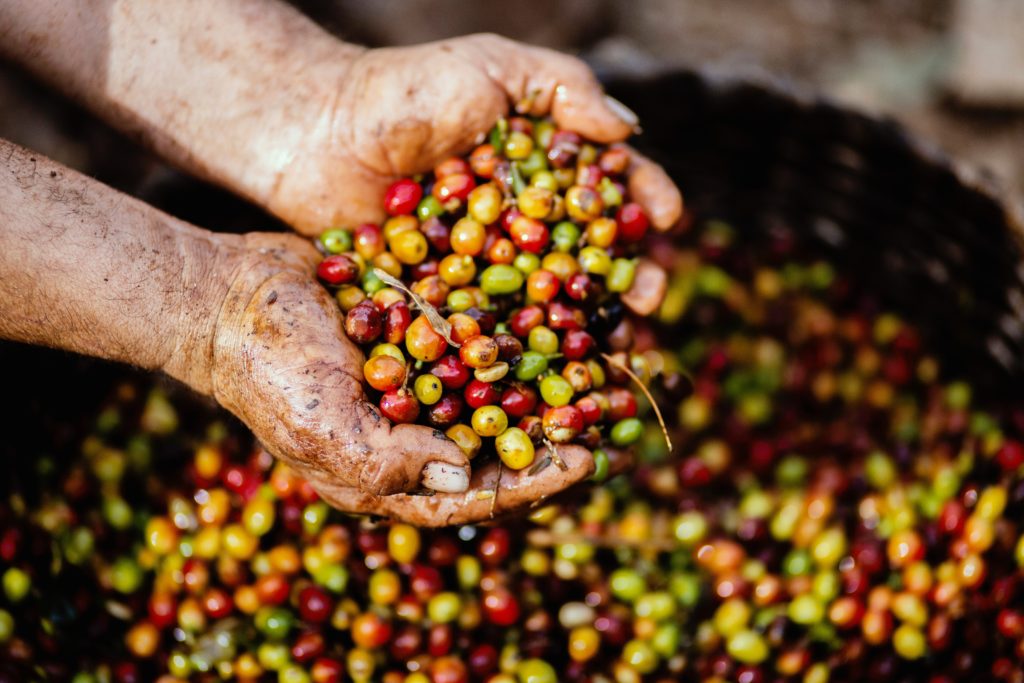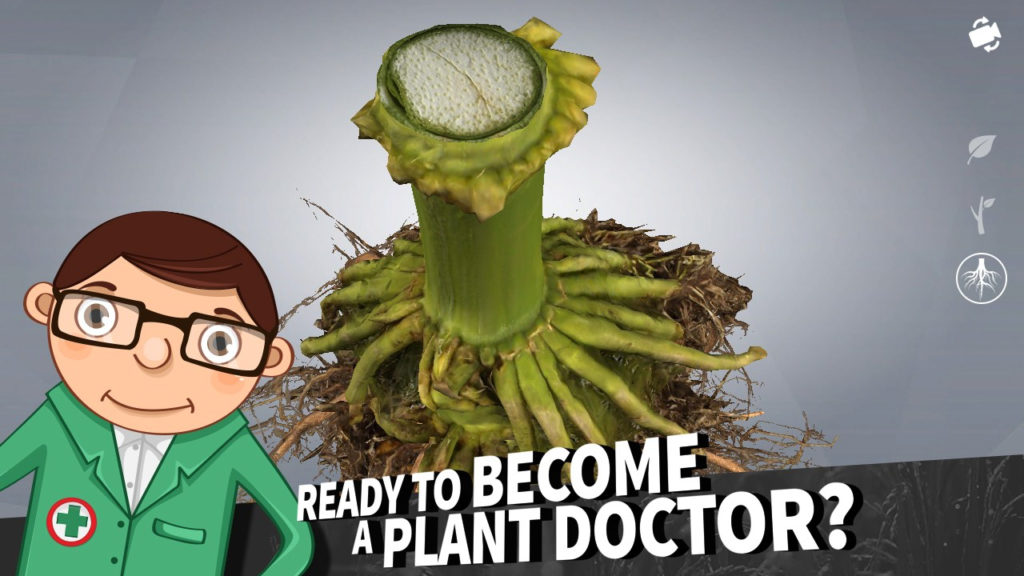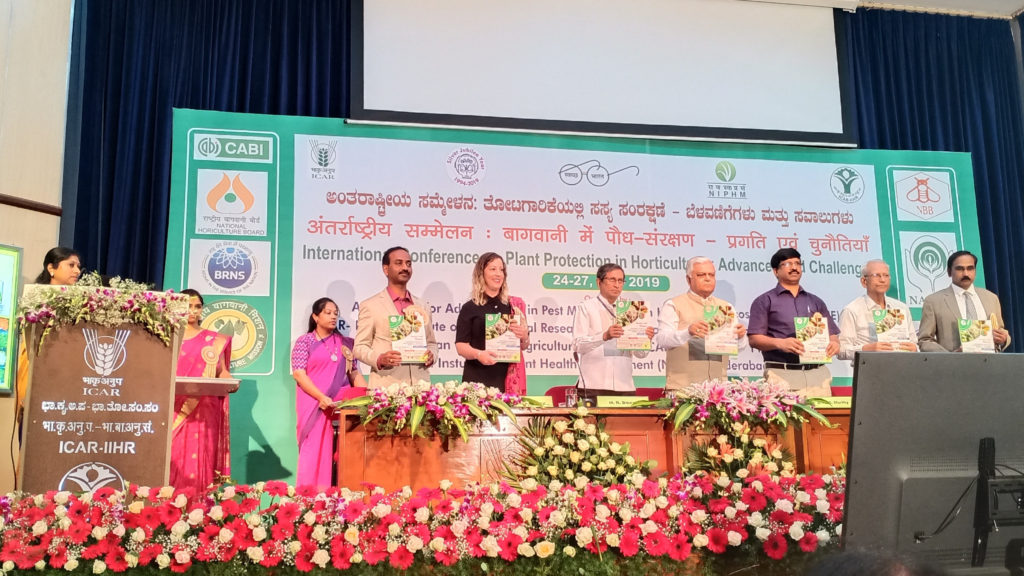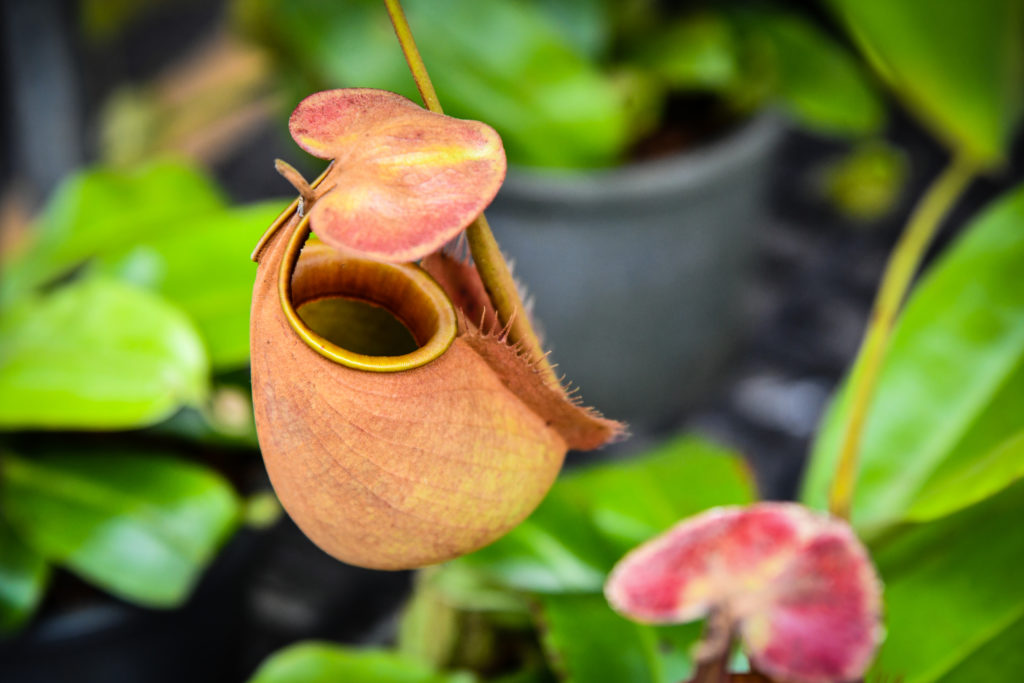Indian NGO supports farmers by using greenhouse agriculture
In the south Indian region of Hyderabad, a non-profit called Kheyti has developed an affordable solution to income stability and climate-resilient crop production for smallholder farmers and SMEs (small and medium enterprises) – greenhouses. The organisation founders spent countless hours meeting with Indian farmers to understand the range of issues threatening farming communities. “When we…
Update: New Pest & Disease Records (06 September 2019)
We’ve selected a few of the latest new geographic, host and species records for plant pests and diseases from CAB Abstracts. Records this month include a report on a new root-knot nematode parasite on coffee in Vietnam, a report on a new variant of the moth Cyana peregrina Walker in India and a report on…
Plantwise releases two educational games for plant doctors
The use of digital devices such as smartphones and tablets to access and share information is rapidly expanding in all areas of our lives, and the agricultural sector is no different. Plantwise is already making use of digital devices, especially in rural areas of the world. Plant doctors, using smart phones and tablets not only…
A new AI-powered app scans banana crops for early signs of disease
By Emma Bryce. Reblogged from Anthropocene. The banana is the world’s most popular fruit: we consume 100 billion of them a year. And yet, their future is threatened by a spate of diseases that are ravaging crops worldwide. Now, researchers have developed a tool to tackle these silent killers: an artificially-intelligent smartphone app that can scan banana…
Test your plant health knowledge with the plant doctor quiz
>> Latest quiz just added Plantwise plant doctors are at the heart of our plant clinic network providing advice and information to farmers, logging their data for the Plantwise Knowledge Bank, and always adapting to new outbreaks and technologies. Think you’ve got what it takes to be a plant doctor? Take our online plant health…
CABI programmes showcased at International Conference on Plant Protection in Horticulture
CABI programmes, Plantwise and Action on Invasives, have showcased their expertise in plant protection and improving rural livelihoods to a global audience of agriculture experts and scientists at the recent International Conference on Plant Protection in Horticulture held at ICAR-Indian Institute of Horticultural Research, Bengaluru.
Smelling plant diseases: New technology identifies plant diseases remotely in the field
Researchers at North Carolina State University have published an exciting study on a novel technology which allows farmers and extension workers to identify plant diseases remotely in the field using airborne chemical fingerprints. The newly developed handheld sensory device, which can be plugged into a smartphone, samples the airborne levels of volatile organic compounds (VOCs)…
Biological controls viable alternative to pesticides for rice farmers in China
Between 2011 and 2015, CABI set up 22 Trichogramma rearing facilities as part of a project to promote the use of biologically-based Integrated Pest Management (IPM) for rice and maize crops. In addition to creating the Trichogramma rearing facilities, IPM strategies for rice and maize were developed in Southwestern China, Laos and Myanmar.
Update: New Pest & Disease Records (05 August 2019)
We’ve selected a few of the latest new geographic, host and species records for plant pests and diseases from CAB Abstracts. Records this month include a report on the honey locust podgall midge (Dasineura gleditchiae) in Ireland, a report population fluctuations of fruit flies in guava orchards and a report on a new record of Helopeltis…










